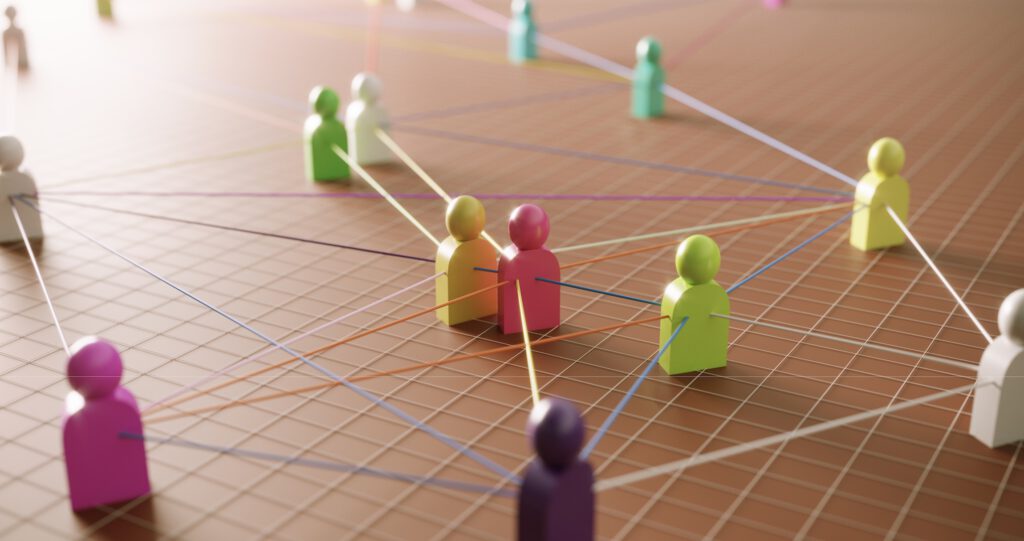How can corporate governance become more sustainable? In our Expert Tips, we describe one of the most important factors for this: convincing employer branding. In irregular intervals, we use our Future series to introduce unusual approaches to Good Governance, such as the CEO Day. This time, it is about an idea which, at first sight, may appear somewhat exotic but which is thoughtprovoking in a very useful way: time management in ‘Pac-Man mode’ turns interruptions into potential successes!
Time Management – More Important Than Ever
Since the pandemic’s ebbing away, working life has gathered enormous momentum, even in areas of weak economic development. “More speed, more projects, more complexity and not enough staff, mastering all of this simultaneously, this is the dominant stance of about 1,000 decision-makers interviewed for the latest issue of the HAYS HR Report1.
So it comes as no surprise that good time management is a core skill in today’s working life. Thoughtfully designed procedures and wisely timed pauses are supposed to yield optimal productivity. This is even more true of executives, who tend to work more independently, but also need to be more self-organised.
Interruptions are among the greatest time killers. A joint study of the University of California and Berlin’s Humboldt University has found that it takes about 23 minutes until workers are fully concentrated on their previously interrupted task2. Changes in task which are pre-planned and necessary effect delays like this. In such cases, time management trainers recommend dividing the working day into task blocks, thus limiting time loss to an absolute minimum. These blocks should be dedicated to one type of task. For, if youstick to the same topic or work mode for a longer period, you will automatically lose less time than someone who keeps switching between very different topics.
No Two Interruptions Are the Same
For some tasks, interruptions are an integral part. When a team project reaches crunch time, the team leader will have to be readily availble. Very much the same goes for a new employee’s on-boarding situation. However, there are also all those unsolicited interruptions – phones ringing, urgent e‑mails, the quick question in passing. Browsing the countless tips and development publications on time management will easily give you the impression that such interruptions yield negative effects only. Mostly, the advice is to prevent them as much as possible.
Game Theory: the Revolutionary Approach
Jordan Shapiro, professor of philosophy and strategic consultant, chooses a different approach3. He relies on the findings of game theory: Pursuing a goal without any interruptions will rob you of this moment of pausing; you will lose reflection and self-monitoring:
You think you want tranquility; but you don’t. A close look at Pac-Man shows us that distractions and interruptions are an essential factor in success and productivity. Pac-Man can be understood like a tutorial on time management’s relationship to happiness.
In 1980, Pac-Man was one of the first computer games and it is still enjoying great popularity today. For game theory, it is the combination of two fundamental functions: avoiding obstacles (four ghosts) and gathering reward points. The four ghosts are special in that they behave differently and more or less unpredictably.
What Is Pac-Man’s Lesson for Time Management?
Shapiro sums up his obervations in three propositions:
- Interruptions mean spontaneity. We should factor them in and regard them as an opportunity to step out of our habitual routine and consider new paths.
- Interruptions bring about great ideas. For Shapiro, truly great ideas cannot be generated by force. Genuine creativity comes from an incalculable flight of thoughts following a distraction.
- No two interruptions are the same, each has unique characteristics. Consequently, different interruptions can provoke diverging thoughts.
With above theses, Shapiro implicitly reveals a typically US American way of thinking positive – in other words: there is no benefit in regarding interruptions as a mere nuisance. Being aware of the opportunity they offer is being able to take advantage of them.
1 HAYS HR-Report 2022: „Organisationen unter Druck. Zu wenig Zeit, Geld, Personal — wie die Pandemie den Kampf um knappe Ressourcen beeinflusst.“ (Organizations Under Presssure. Too Little Time, Money, Personnel — How the Pandemic Impacts the Fight for Scarce Resources)
2 Gloria Mark (Department of Informatics, University of California, Irvine), Daniela Gudith & Ulrich Klocke (Institut für Psychologie, Humboldt Universität, Berlin); The Cost of Interrupted Work: More Speed and Stress, Irvine/Berlin 2018
3 Jordan Shapiro; Against Tranquility! Pac-Man, Time Management, and Distractions, Forbes Magazine, 21 November 2012



























































